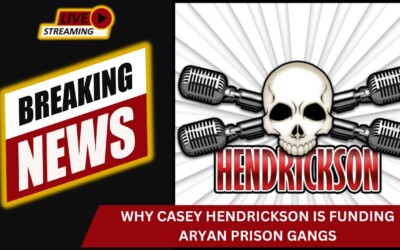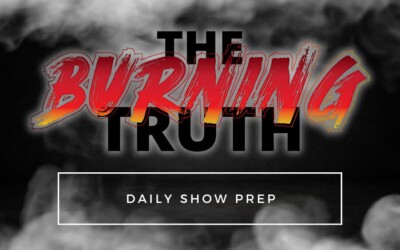I know, this seems controversial. It isn’t.
The United States did win the Vietnam War.
Casey Hendrickson breaks down the 11-Day War (Operation Linebacker II) and the enemy giving up after we gave them a total defeat.
Casey also talks about the despicable actions of Walter Cronkite in prolonging the Vietnam War when the North was considering ending the conflict years before it did.
Revisionist historians who hate America were responsible for spreading this lie and completely gaslighting the entire American public. It’s a lesson in media lies and manipulation, and how those lies can permeate throughout our society.
How the U.S. Won the Vietnam War and How Revisionist Historians Lied to You
When it comes to the Vietnam War, most people assume the United States lost. But what if we told you that wasn’t the case? The truth is, the U.S. won the Vietnam War in a way that most historians either overlook or deliberately ignore. This article dives into how Operation Linebacker II sealed America’s victory and why revisionist historians have distorted this historical reality. Let’s separate fact from fiction.
Revisiting the Vietnam War Narrative
The Common Misconception
Most people believe the Vietnam War ended in failure for the U.S. due to widespread narratives about a botched effort. The chaos of the Fall of Saigon in 1975 often overshadows the strategic victories achieved years earlier.
The Role of Media and Misinformation
Legendary news anchor Walter Cronkite declared the war “unwinnable,” but his statements weren’t just pessimistic—they were misleading. His remarks helped shape a public opinion that ignored key military successes.
Operation Linebacker II – The Turning Point
What Was Operation Linebacker II?
Also known as the “11-Day War,” this was a series of intense bombing raids in December 1972 aimed at pressuring North Vietnam into peace negotiations.
The Strategy Behind the Bombings
- Massive Airstrikes: Over 20,000 tons of bombs were dropped.
- Targets: Key industrial sites and supply lines were obliterated.
- Objective: Force North Vietnam to negotiate on U.S. terms.
The Results of Linebacker II
The operation was a resounding success. North Vietnam agreed to return to the negotiating table, leading to the signing of the Paris Peace Accords in January 1973.
The Media’s Role in Prolonging the War
Walter Cronkite’s Influence
Cronkite’s declaration that the war was unwinnable came at a time when the U.S. was on the cusp of major victories. His broadcast eroded public support and emboldened anti-war movements.
How Misinformation Spread
- Sensational Headlines: Stories of civilian casualties overshadowed military achievements.
- Ignored Context: Critical battles like Tet Offensive were misrepresented as defeats, despite being tactical wins for the U.S.
Revisionist Historians and Their Agenda
Why Distort History?
Some historians have ideological biases, framing the Vietnam War as a moral failure rather than a complex geopolitical conflict.
The Impact on Public Perception
- Undermined Trust in Leadership: False narratives fostered skepticism toward U.S. military strategy.
- Demoralized Veterans: Soldiers returning home were often vilified instead of celebrated.
Setting the Record Straight
The Facts About U.S. Victory
While the U.S. withdrew troops in 1973, they left behind a South Vietnamese government that could have sustained itself had Congress continued funding.
The Real Failure
The collapse of South Vietnam in 1975 was due to a lack of U.S. support, not military incompetence. Congress slashed aid, leaving South Vietnam vulnerable to Northern aggression.
Lessons for Modern Conflicts
Media’s Power in Shaping Wars
The Vietnam War teaches us how media can influence public opinion and, in turn, military policy.
Importance of Sustained Support
Wars aren’t just won on the battlefield—they’re also won in the halls of Congress and the hearts of citizens.
FAQs About the Vietnam War
1. Did the U.S. lose the Vietnam War?
No, the U.S. achieved its objectives through Operation Linebacker II, but lack of Congressional support for South Vietnam led to its fall in 1975.
2. Why is Walter Cronkite criticized?
His declaration of the war as unwinnable contributed to declining public support despite U.S. military successes.
3. What were the Paris Peace Accords?
Signed in 1973, these agreements officially ended U.S. involvement in Vietnam and established a ceasefire.
4. How did revisionist historians distort the Vietnam War?
By ignoring key victories and framing the conflict as a complete failure, they misled generations about America’s role and achievements.
5. What lessons can we learn from Vietnam?
Effective communication, sustained support, and an understanding of the media’s influence are crucial for success in modern conflicts.
See omnystudio.com/listener for privacy information.




0 Comments